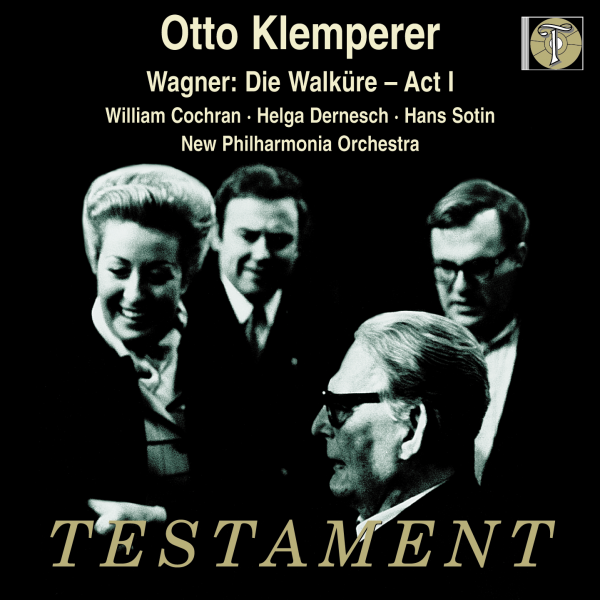Logowanie
Dlaczego wszystkjie inne nie brzmią tak jak te?
Chai Lang, Fan Tao, Broadcasting Chinese Orchestra
Illusive Butterfly
Butterly - motyl - to sekret i tajemnica muzyki chińskiej.
SpeakersCorner - OSTATNIE!!!!
RAVEL, DEBUSSY, Paul Paray, Detroit Symphony Orchestra
Prelude a l'Apres-midi d'un faune / Petite Suite / Valses nobles et sentimentales / Le Tombeau de Couperin
Samozapłon gwarantowany - Himalaje sztuki audiofilskiej
PROKOFIEV, Stanislaw Skrowaczewski, Minneapolis Symphony Orchestra
Romeo and Juliet
Stanisław Skrowaczewski,
✟ 22-02-2017
BARTOK, Antal Dorati, Philharmonia Hungarica
Dance Suite / Two Portraits / Two Excerpts From 'Mikrokosmos'
Samozapłon gwarantowany - Himalaje sztuki audiofilskiej
ENESCU, LISZT, Antal Dorati, The London Symphony Orchestra
Two Roumanian Rhapsodies / Hungarian Rhapsody Nos. 2 & 3
Samozapłon gwarantowany - Himalaje sztuki audiofilskiej
Winylowy niezbędnik
ClearAudio
Cartridge Alignment Gauge - uniwersalny przyrząd do ustawiania geometrii wkładki i ramienia
Jedyny na rynku, tak wszechstronny i właściwy do każdego typu gramofonu!
ClearAudio
Harmo-nicer - nie tylko mata gramofonowa
Najlepsze rozwiązania leżą tuż obok
IDEALNA MATA ANTYPOŚLIZGOWA I ANTYWIBRACYJNA.
Wzorcowe
Carmen Gomes
Celebrating the art and spirit of music - vol. 5 - Reference Songs
- CHCECIE TO WIERZCIE, CHCECIE - NIE WIERZCIE, ALE TO NIE JEST ZŁUDZENIE!!!
Petra Rosa, Eddie C.
Celebrating the art and spirit of music - vol. 3 - Pure
warm sophisticated voice...
SAMPLER - STS DIGITAL, Gregor Hamilton
Celebrating the art and spirit of music - vol. 2 - Love songs from Gregor Hamilton
...jak opanować serca bicie?...
SAMPLER - STS DIGITAL
Celebrating the art and spirit of music - vol. 1 - Leonardo Amuedo
Największy romans sopranu z głębokim basem... wiosennym
Lils Mackintosh
Celebrating the art and spirit of music - vol. 4 - A Tribute to Billie Holiday
Uczennica godna swej Mistrzyni
WAGNER, Otto Klemperer
Die Walkure: Act 1
- 1. Die Walküre (The Valkyrie), opera, WWV 86b : Prelude (4:24)
- 2. Die Walküre (The Valkyrie), opera, WWV 86b : Wes Herd dies auch sei (8:16)
- 3. Die Walküre (The Valkyrie), opera, WWV 86b : Einen Unseligen labtest du (4:14)
- 4. Die Walküre (The Valkyrie), opera, WWV 86b : Müd am Herd fand ich den Mann (5:35)
- 5. Die Walküre (The Valkyrie), opera, WWV 86b : Friedmund darf ich nicht heißen (6:33)
- 6. Die Walküre (The Valkyrie), opera, WWV 86b : Die so leidig Los dir beschied (4:58)
- 7. Die Walküre (The Valkyrie), opera, WWV 86b : Ich weiß ein wildes Geschlecht (5:56)
- 8. Die Walküre (The Valkyrie), opera, WWV 86b : Ein Schwert verheiß mir der Vater (6:54)
- 9. Die Walküre (The Valkyrie), opera, WWV 86b : Schläfst du Gast? (7:43)
- 10. Die Walküre (The Valkyrie), opera, WWV 86b : Winterstürme wichen dem Wonnemond (3:22)
- 11. Die Walküre (The Valkyrie), opera, WWV 86b : Du bist der Lenz (2:14)
- 12. Die Walküre (The Valkyrie), opera, WWV 86b : O süsseste Wonne! Seligstes Weib! (7:02)
- 13. Die Walküre (The Valkyrie), opera, WWV 86b : Siegmund heiß' ich und Siegmund bin ich! (4:17)
- Otto Klemperer - conductor
- WAGNER
William Cochran, Helga Dernesch, Hans Sotin New Philharmonia Orchestra Otto Klemperer Rehearsed by Reginald Goodall, this slow, dark-hued, un-Romantic, un-sentimental, un-optimistic reading of what is normally the Ring's most chipper act is a fascinating study. Assuring the darkness is a non-radiant Sieglinde, and I mean this objectively. Helga Dernesch always was a troublesomely short-topped soprano and by the time this was recorded her voice was genuinely dark, more mezzo than soprano. Her concern for Siegmund from the beginning is tinged with the unending gloom of her life, and when she recounts the story of her wedding, the stranger with the sword, etc. ("Der manner sippe"), her rising excitement never transcends this darkness. William Cochran was a good Siegmund; he's very much inside the role, his voice rings out heroically, and while he's clearly thrilled to have bumped into his wife/sister, he continues to sound as inevitably doomed as he sounds in the first half of the act. Hans Sotin is a young-sounding Hunding, and the fact that he takes his time subtly and uninflectedly threatening his guest makes him all the more menacing. Otto Klemperer is oddly considerate of his singers: he holds the orchestra down for much of Sieglinde's early music; in moments of real stress--the two "Walses" for example--the tempos quicken so as not to push Cochran beyond his limits; and Siegmund's difficult final phrase is taken rapidly as well. But in general, this is a down-tempo Act 1 (it takes just under 72 minutes). There is nice detail to be heard from the orchestra, but the playing isn't particularly good, with brass flubs throughout and occasionally ragged string ensemble work. But you cannot deny the power of the climactic sword-pulling, which overwhelms. The sound, nearly 30 years old, is gorgeous--big, honest stereo. This recording is for those curious about Die Walküre almost from a clinical point of view; we can only shudder at the thought of how relentlessly dismal an entire Klemperer set would have been. In other words, this recording is very subjective and very interesting--and not for everyone. (Robert Levine, ClassicsToday.com)
























